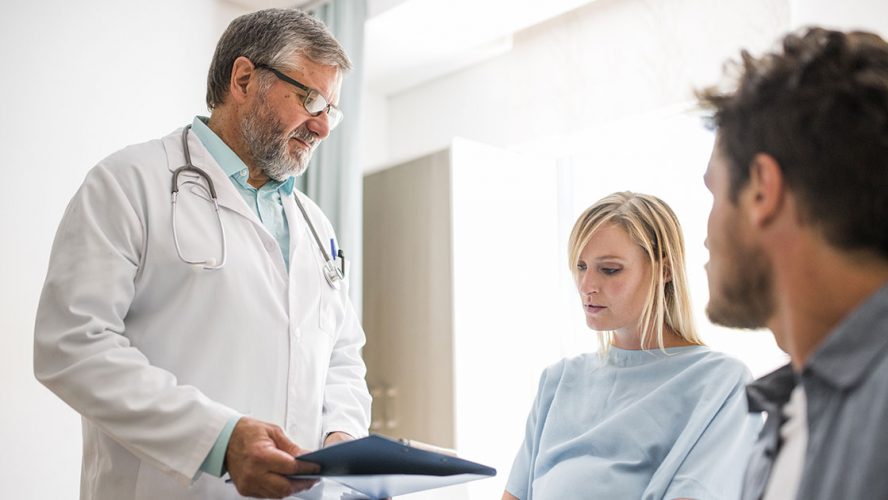Is there a young woman in your life who is pregnant and misusing or addicted to opioids?
With comprehensive treatment and proper prenatal care, the mother-to-be can reduce the risks to both herself and the baby. She may face harsh judgment from others, but don’t let this dissuade her from seeking treatment and support. As someone who cares about the mother and her baby, you have an opportunity to offer help to start her on the road to recovery and to deliver a healthy child.
Below is an excerpt from the Partnership for Drug-Free Kids’ “Pregnancy & Opioids Guide: What Families Need to Know About Opioid Misuse and Treatment During Pregnancy.” The Guide also includes information on supporting breastfeeding and newborn health, medication-assisted treatment, recovery care, as well as the stigma, discrimination and prejudice associated with substance use and addiction.
Get her to the doctor
“As with any pregnancy, patients need good obstetric care,” explains Dr. Adam Bisaga, M.D., a research scientist at the New York State Psychiatric Institute and a professor of psychiatry at Columbia University Medical Center. “The patient should tell the obstetrician of her addiction and have someone monitoring the pregnancy. She should see them as soon as possible and get regular checkups. She and the baby will have a healthier outcome the sooner she starts to see a doctor.”
What you can do:
- Encourage her to receive immediate and regular prenatal care from providers who are knowledgeable about the impact of substance use during pregnancy
- To find a helpful and supportive provider, ask around in the recovery community — or ask the provider what his or her view of addiction is to see if they’re the right fit
- Provide support by accompanying her to prenatal care appointments, if possible
- Encourage a healthy lifestyle, good nutrition, relaxation and stress-relief techniques such as meditation and light exercise, if approved by her provider
Get her to treatment
The mother-to-be will also need treatment to address her physical, psychological, emotional and social issues in addition to her opioid use. Nineteen states have funded treatment programs for pregnant women. The Substance Abuse and Mental Health Services Administration (SAMHSA) maintains a treatment finder, where you can search for pregnancy and post-partum programs across the country.
The mother-to-be may also need mental health treatment. An estimated 50 to 80 percent of pregnant women with an opioid use disorder also have a mental health disorder. In many — if not most — cases, trauma-informed care is needed as well. This is a treatment framework that involves understanding, recognizing and responding to the effects of all types of trauma. Trauma-informed care emphasizes physical, psychological and emotional safety and helps survivors rebuild a sense of control and empowerment.
Keep in mind that pregnant women who misuse opioids are at increased risk for pregnancy-associated complications and death. Untreated substance use disorders have been linked to high-risk behaviors, such as prostitution and crime, which can expose pregnant women to sexually transmitted diseases, violence, legal problems and incarceration. It’s essential that the mother-to-be gets proper treatment for her opioid use disorder and gets good medical care for herself and her baby.
What you can do:
- Help her find trauma-informed addiction treatment. Search the SAMHSA treatment finder for pregnancy and post-partum programs across the country.
- Help her find mental health treatment, if needed, which you can also find at the SAMHSA treatment finder. It’s important that her substance use and any other mental health problems are addressed simultaneously.

